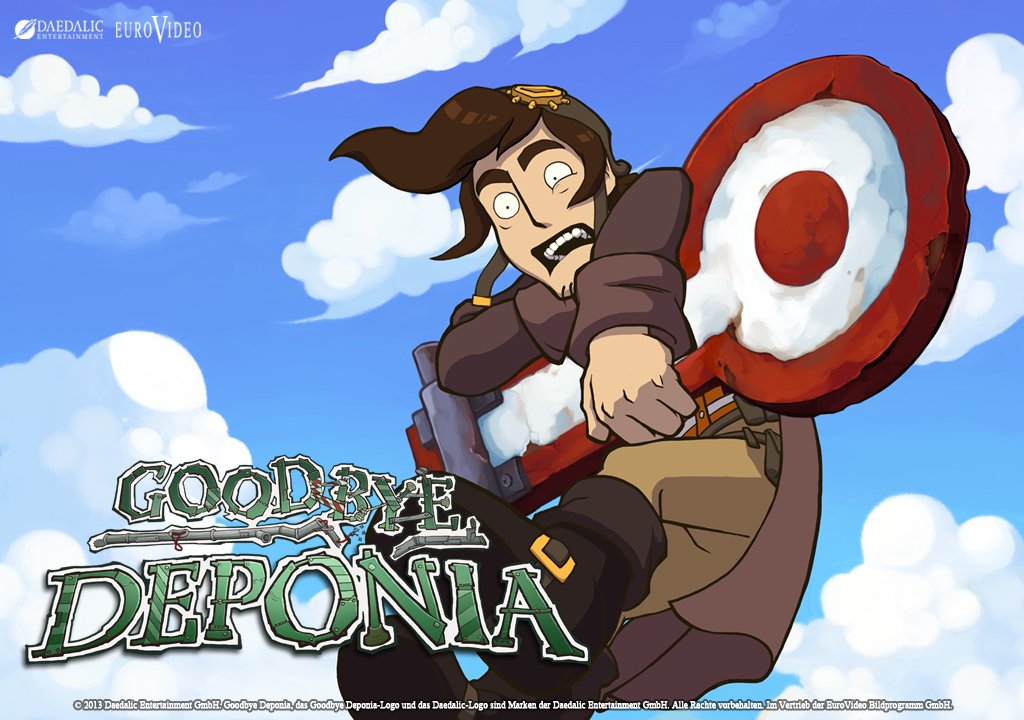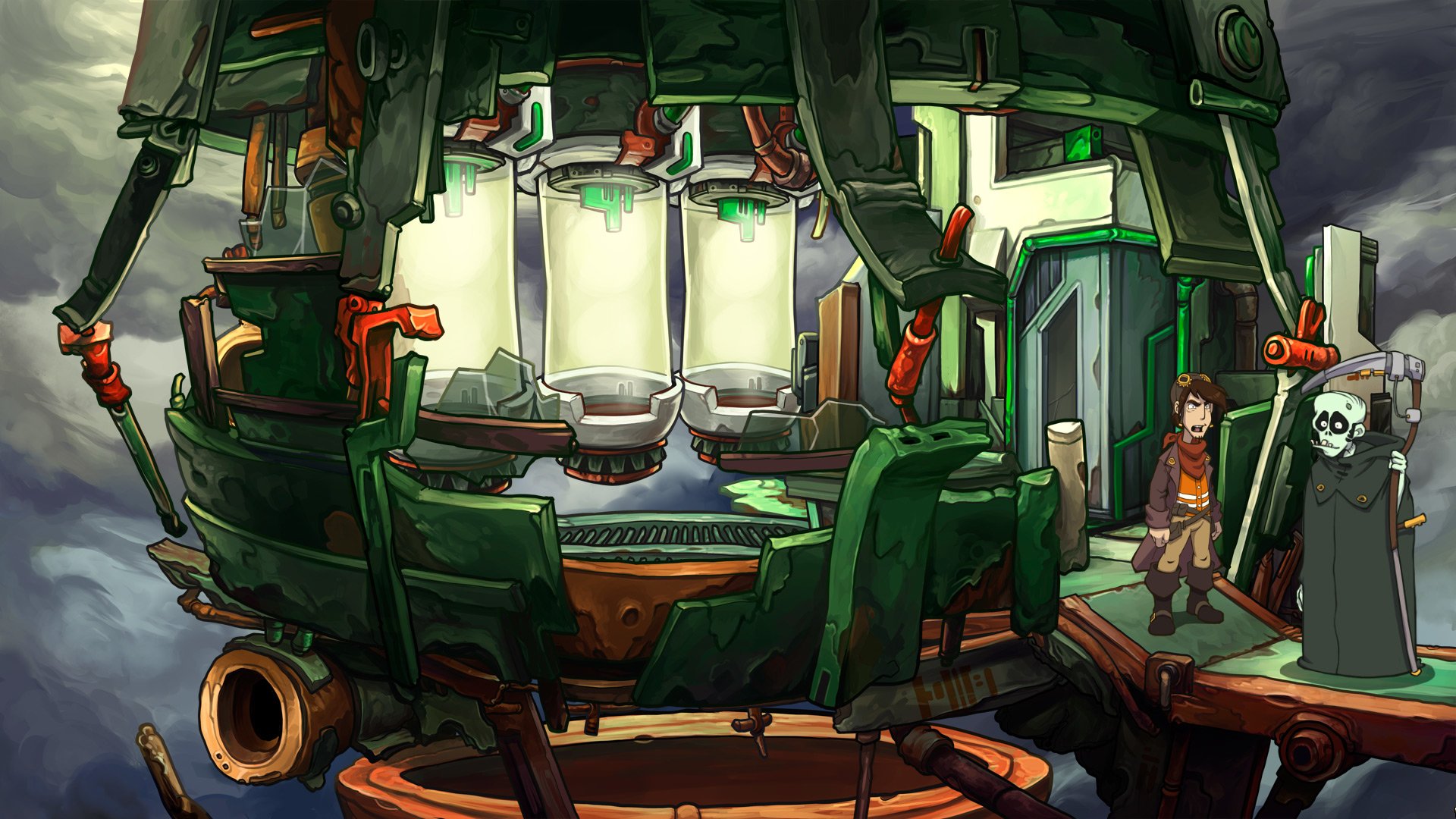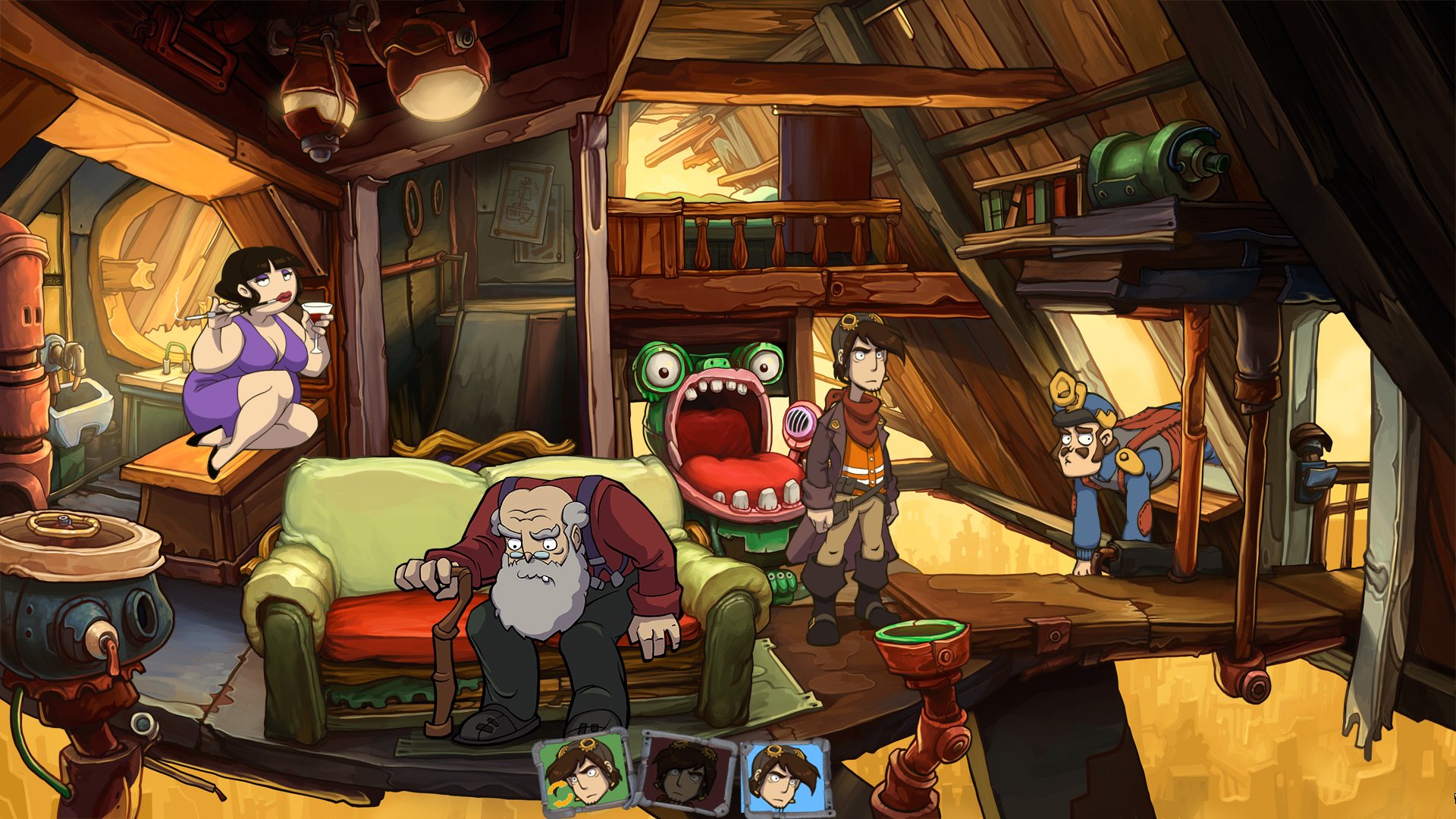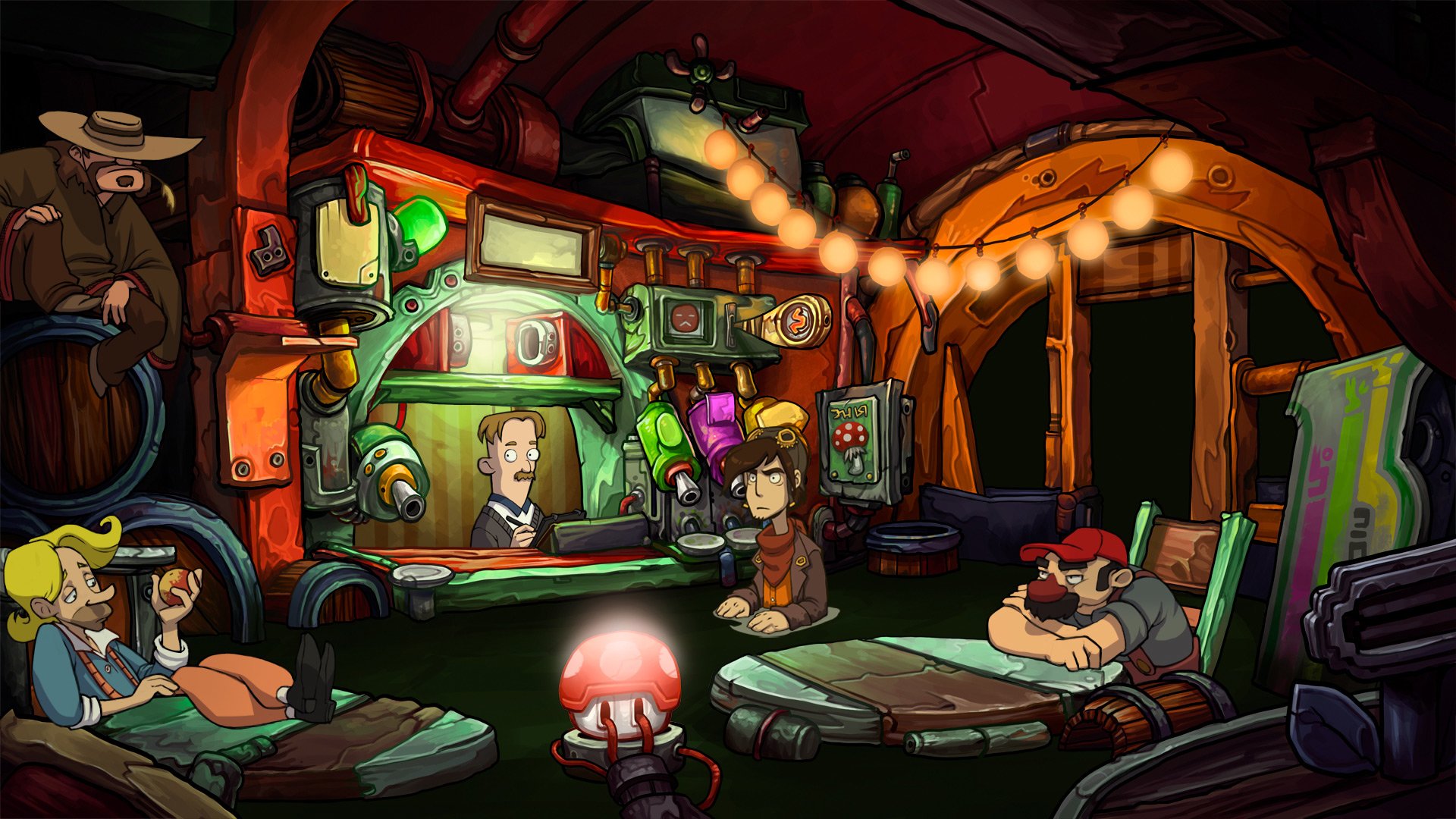For some reason, Germany is the place to be for point-and-click adventure games right now. Germany is home to Studio Fizbin, makers of recently reviewed The Inner World, and Daedelic Entertainment, which is trying its hardest to carry the torch in this genre after the demise of LucasArts. The latter even serves as publisher for PC-distributed new titles in venerable LucasArts classics like Monkey Island and Sam & Max. Their own development efforts have produced Night of the Rabbit and the Deponia series, which now adds a third and final installment.
The story follows Rufus, a resistance fighter on post-apocalyptic junk-industrial planet Deponia in his struggles against the privileged, technologically advanced Organon. Rufus would like to think of himself as a mechanically gifted, think-on-his-feet Jason-Bourne type adventurer, but most of his successes are the result of bungling, slapstick luck. His narcissism in the face of danger is pretty funny, and occasionally reminded me of Archer without Archer’s genuine unmotivated talent. Rufus must save the entire planet from obliteration at the hands of the Organon, but his efforts usually take second consideration to his fawning over Goal, a defector from Organon-run Elysium. Her name serves as a literal reminder of Rufus’s true…well…objective.
By nature, these games have limited mechanics, and so must attempt to be captivating in other ways. In Deponia‘s case, it leans on colorful cartoony art, and dialogue sequences with lots of fourth-wall-breaking sidelong glances at the audience to poke fun at the genre. Comedy is foremost here. Knowing it depends so heavily on dialogue, the game pumps out a lot of it. Maybe it’s because I’ve played a lot of point-and-click adventures lately, but I’m starting to lose a bit of patience with prolixity. It’s very cool that all the dialogue gets voice acting today, but the performance for Rufus tries too hard for laughs. I think actor Kerry Shale was directed to never go for subtlety when he could go for over-acting. Every word in the sentence is dripping with a heavy dose of emotion piled on. “Please” becomes “puh-leeze” whenever possible.
It was usually a little much for me, but part of my slight discomfort was the script. This game tries very, very hard for laughs, which sometimes felt like forcing it. There are, however, plenty of legit funny moments attained by (if nothing else) the sheer volume of comedy attempts thrown at the player. Much of the script really is quite good, with observational gems like “When Chaos floods order, genius mounts a surfboard.” The game brightens when events involve other characters with whom Rufus can react, rather than his own internal monologue.
The artwork is much better than the animation in this case, but overall, setting and sound design are excellent here. Characters pop with cartoony flair and although they could have used a few more facial expressions, they were good enough to occasionally deliver a reaction joke without any dialogue at all. The game would have been well served with a bit more excitement to the movements. When something crazy happens, having characters use their stock walking animations to move around the scene seems very out-of-place when they would reasonably be running and diving around.
The challenge design in Deponia is mostly familiar, if you have played any point-and-click adventure game before. Move (usually an unhurried mosey) through colorful, picture book scenes and collect items that can be tinkered with or manipulated to form solutions to obstacles in the way of plot advancement. I’m still on the fence about built-in object highlighting that serves as a shortcut to what otherwise might be a scavenger hunt, but regardless, Deponia has it. Maybe it’s because I’ve been playing a lot of these games lately, but I find Deponia‘s challenges went more smoothly through my brain than most other such adventures, and this is something all three Deponia games have in common. It’s not that I’m particularly great at adapting to madcap anti-logic indigenous to a comedy game, but I think they did a great job of writing hints into Rufus’s dialogue that shone light on the perspective I might try to take on an object in order to see it as a key that could fit whatever lock barred my way. Much of the design success there is about skillful use of language – hint without being stupidly obvious. In this sense, the scriptwriters deserve a lot of props.
Moreover, Deponia throws in delightful change-ups in the form of self-contained puzzles that must be solved immediately before the player can advance. The game will often provide a few brief sentences of overview before setting you to it, and these brainteasers provide a little hint of Professor Layton feel to the game. I really liked this change of pace a lot. I thought they struck a good balance of being challenging without aggravating, and used sparingly enough to avoid dominating the more narrative-focused item tinkering.
Here’s my biggest complaint of the game. Occasionally, the series of events will advance off-screen and you have no idea that happened. Working past a challenge will trigger something else completely unrelated to develop, and you will just need to happen across it in order to know it happened at all. For example, there was a scene in which Rufus must execute a comedy of errors on series villain Cletus, and when it’s over, Rufus’s three sidekicks have wrapped up the thing they were waiting for. There was no way to know that without just checking in on them, since Rufus’s caper was unrelated to their wait. I was stuck for awhile until I decided to just start poking into rooms to see if there was anything I missed, therefore essentially finding the “answer” by luck or process of elimination.
I have to be cryptic about story events, since story is so crucial to the experience of this sort of game. Suffice it to say that if you have played the previous two Deponia games, this one is a must-play. It’s relentless attempts at levity actually do a great job of letting the very few moments of actual despair and darkness stick out by contrast. Any more would be getting into spoilers. Goodbye Deponia wraps everything up nicely to me, but I could see room for argument there.
I tend to wrap point-and-click adventures up with similar sentiments: if you’re an enthusiast of the genre, here’s a worthy recipient of your $20.00. I’ll go a step further in this case. Whether you seek out point-and-click adventures or are just looking for something new and different, give the Deponia series a look, but don’t start with the third one. Taken together, Deponia, Chaos on Deponia, and Goodbye Deponia are the best downloadable point-and-click experience on Steam right now, and will deliver the most and best content this genre has seen in years.
This review is based on a review copy of the PC version of Goodbye Deponia published by Daedelic Entertainment
- Story
- Change-Ups
- Verbosity
- Sequencing





